Explore the Best AI Image Gallery

Reimagining Product Photography: AIs Impact on the Creative Industry
The world of product photography is undergoing a dramatic transformation, driven by the rapid advancements in artificial intelligence (AI). Once confined to meticulous manual processes, product photography is now embracing AI-powered tools that automate tasks, enhance creativity, and redefine industry standards. This shift promises to revolutionize how products are presented, marketed, and ultimately perceived by consumers.
The Potential of AI in Product Photography
AIs influence on product photography extends far beyond simple automation. It empowers brands and photographers with a suite of powerful tools:
- Automated Image Generation: AI algorithms can generate realistic product images from textual descriptions or 3D models, eliminating the need for physical shoots in certain scenarios.
- Style Transfer and Editing: AI can apply artistic styles to product images, creating unique and eye-catching visuals that stand out in a crowded market.
- Background Removal and Replacement: AI can seamlessly remove complex backgrounds from product shots, allowing for easy customization and integration into various marketing materials.
- Object Recognition and Segmentation: AI can accurately identify and isolate specific objects within images, enabling precise editing and manipulation of individual product components.
Applications Across Industries
The impact of AI in product photography transcends individual industries. Its versatility allows it to revolutionize various sectors:
- E-commerce: AI-powered tools can generate a vast library of high-quality product images for online stores, reducing costs and increasing efficiency.
- Fashion and Apparel: Brands can utilize AI to create virtual fashion shows and generate personalized product visuals tailored to individual customer preferences.
- Real Estate: Virtual staging with AI can enhance property listings by visualizing furnished spaces, attracting potential buyers.
- Automotive: AI can create 360-degree product views and interactive virtual tours of vehicles, providing customers with immersive experiences.
Ethical Considerations in AI Product Photography
As with any powerful technology, the integration of AI into product photography raises important ethical considerations:
- Transparency and Disclosure: It is crucial to be transparent about the use of AI in creating product images. Consumers should be informed when AI-generated visuals are presented.
- Bias and Representation: AI algorithms can perpetuate existing biases if trained on biased data. Ensuring diversity and inclusivity in training datasets is essential to avoid discriminatory outcomes in product imagery.
- Job Displacement: The automation capabilities of AI may lead to job displacement in certain photography roles. It is important to consider the potential impact on human workers and explore strategies for reskilling and retraining.
The Future of Product Photography with AI
The convergence of AI and product photography is poised to shape the future of visual content creation. We can expect:
- Hyper-Personalization: AI will enable brands to generate highly personalized product visuals tailored to individual customer preferences, demographics, and browsing history.
- Immersive Experiences: Augmented reality (AR) and virtual reality (VR) technologies powered by AI will create immersive product experiences, allowing consumers to interact with products in virtual environments.
- Continuous Learning and Improvement: AI algorithms will continually learn from user data and feedback, refining their abilities to generate more realistic, engaging, and effective product images.
Conclusion
AI is transforming the landscape of product photography, empowering brands with innovative tools to create compelling visuals, enhance customer experiences, and drive business growth. By embracing ethical considerations and fostering responsible development, we can harness the power of AI to unlock new creative possibilities and redefine the future of visual storytelling in product marketing.

](https://images.ai-img.art/thumbnails/150/9ad2f4d771346182f4c9b6d1712edfd0b6b776f37b75dac606a8e03b1bd2dc47.webp)


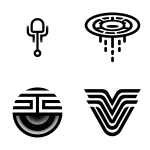


](https://images.ai-img.art/thumbnails/150/89d86a1c20e8844b6d4ce23cf0e6ae10c19923617b6be16cac5d3cc513bf9c4e.webp)
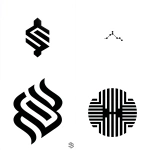
](https://images.ai-img.art/thumbnails/150/55e9c8ac48f7ca1311ec4a843e2616aa87c73e2217901ac138d198afb0b4f1db.webp)
](https://images.ai-img.art/thumbnails/150/c04f7210bb9d35279503ff64ad44a9826d6909838f777fb1edd0fdece2ac7c70.webp)



](https://images.ai-img.art/thumbnails/150/bbf691f1c69e4801062c68d0435463c5bf76258e3984fbe3cc25e9e46174cf88.webp)
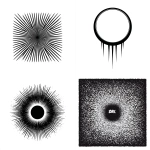

](https://images.ai-img.art/thumbnails/150/5b3fca49762c8c532ff70f250ca3b5900bac75be98d6c82f8f7a220465ad534a.webp)
](https://images.ai-img.art/thumbnails/150/8884a7a8953b23d6c882f33524c10e09d320bbce4f305f2c7e79c402d82c1760.webp)



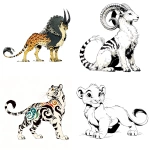
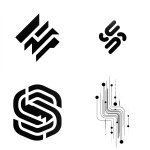
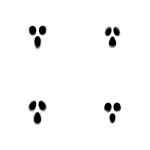
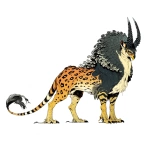
](https://images.ai-img.art/thumbnails/150/78a1311461ccc4b60dd1430d56ee04b3b5612a3145aef0a32196168d5489fdf3.webp)
](https://images.ai-img.art/thumbnails/150/cc8f7b8338e849e1e11a902ac51eda96c8f710e5d829c5b4d57b56fa05d28e95.webp)
](https://images.ai-img.art/thumbnails/150/f9928aee79da6b2028ac7a7129ac30e6475a85d5300661776fde267c2da839ab.webp)

](https://images.ai-img.art/thumbnails/150/16ec42833d204af37c75cc776a794c54661cbfe1061c899680a4976a7f74cd51.webp)
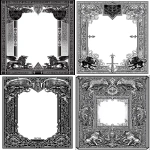
](https://images.ai-img.art/thumbnails/150/45d068cbdc39002eccc21e2169438a3c142426219fda8c9e027c536cdf66811e.webp)
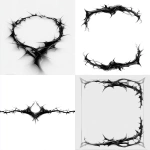

](https://images.ai-img.art/thumbnails/150/4d725f4d5380eb583bdebf0aad4c789acd6782398b4050f01f350a939dd4c2af.webp)

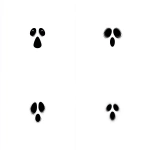

](https://images.ai-img.art/thumbnails/150/03de477e462377e62b34fea23ab1cbf6d4557f4077cc8bed9f23388af1200721.webp)



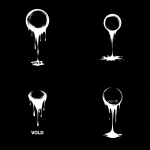
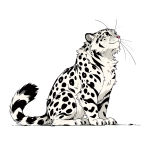

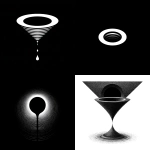


](https://images.ai-img.art/thumbnails/150/f1cbba604c7411267acd95acaa4746a5ee006a25ade5e596a9501884b384e1dd.webp)